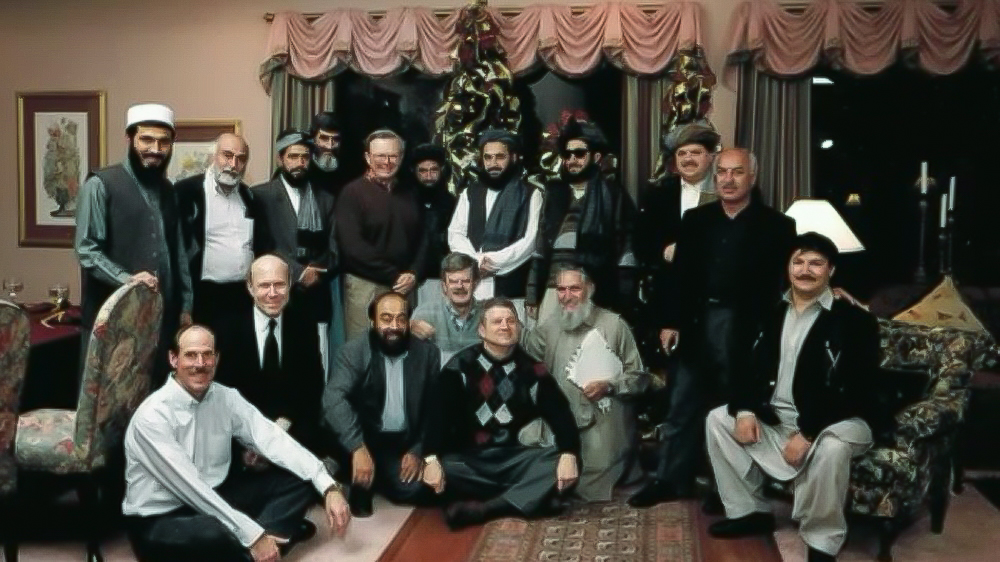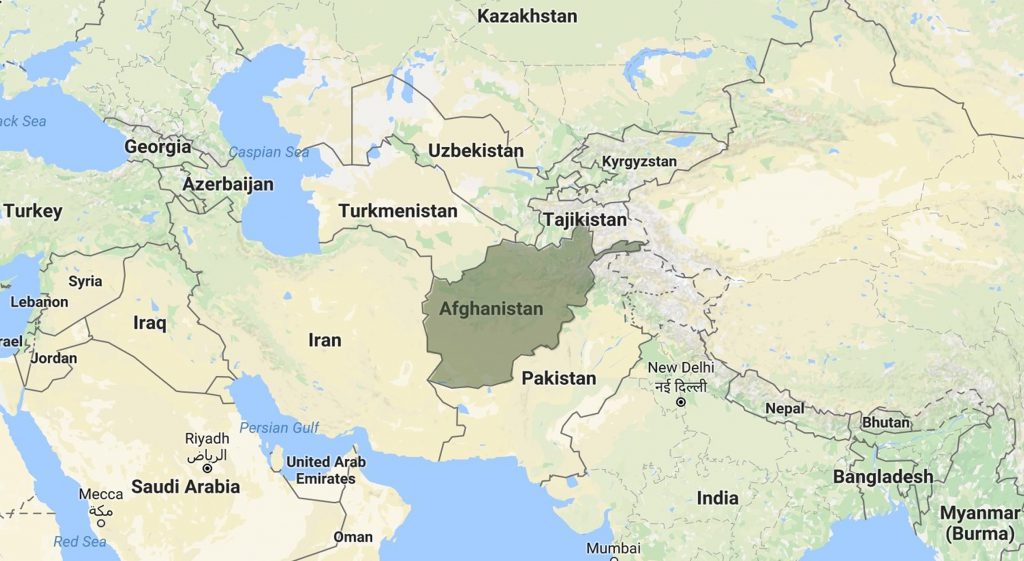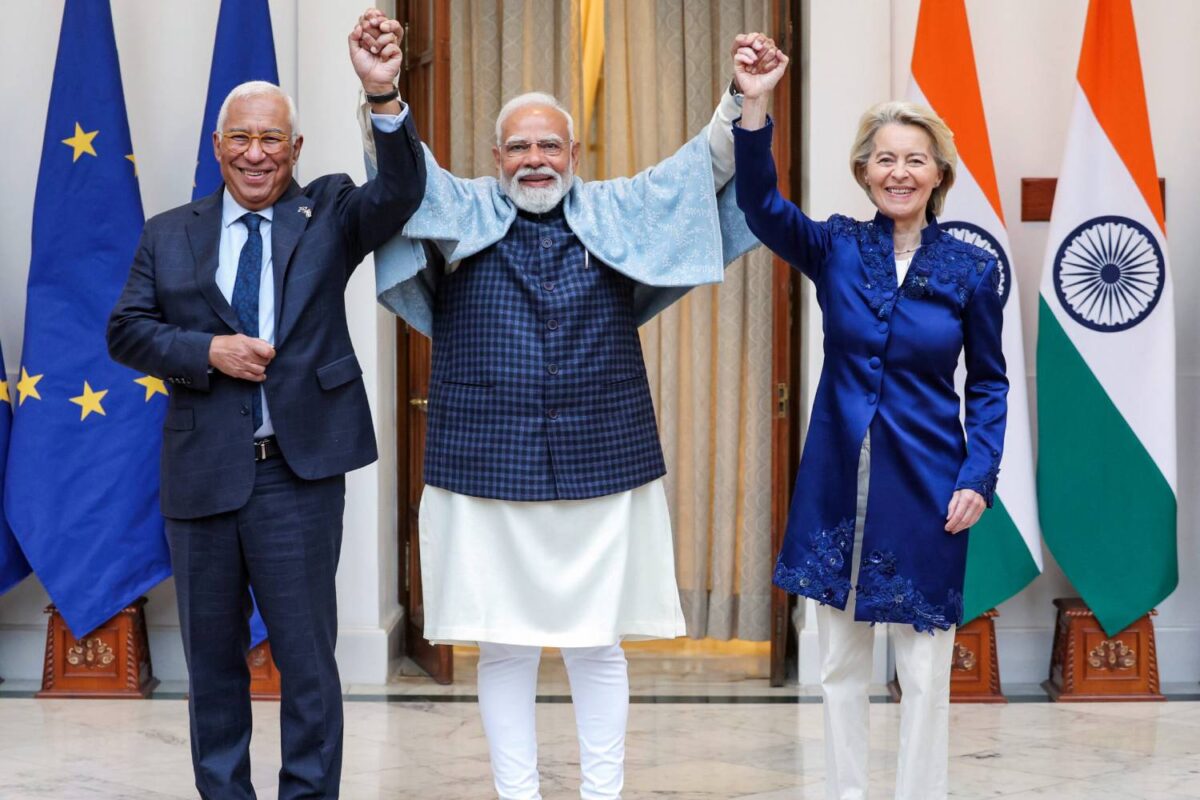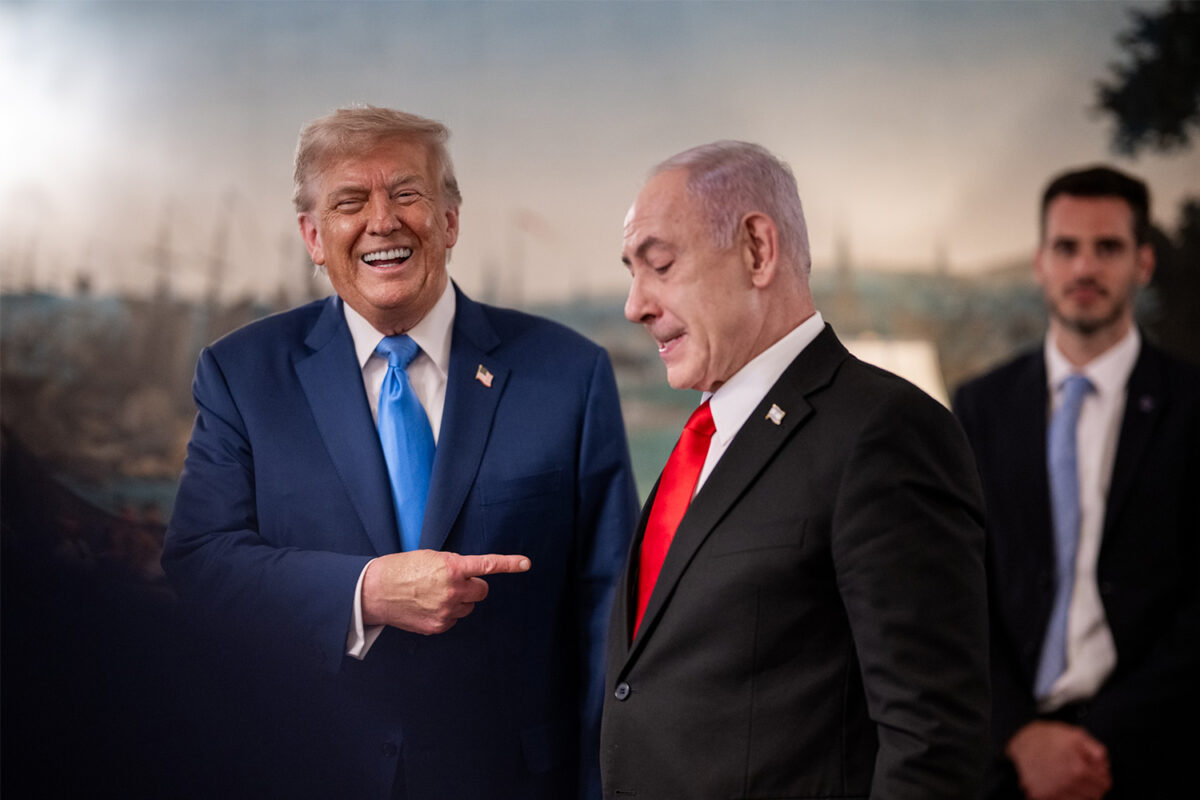The mountains and deserts of Afghanistan claimed both the British Empire and the Soviet Union in the past. Many historians have now added the US to the list as Afghanistan is now America’s longest ever war, longer than both WW1 and WW2 combined. Afghanistan has claimed a superpower every century for the past two centuries and US is likely to become its 21st century victim. US president Donald Trump recently announced his strategy for the Afghan war and he showed he has not learnt any lessons from the Soviets or the British defeats. Why does Afghanistan constantly become the battleground for empires and why is it such a crucial piece of real estate that nations and empires have ruined themselves trying to conquer it? In this third part of RO’s series on Afghanistan we assess the geopolitical importance of Afghanistan.
A cursory glance at Afghanistan on a map shows it sits right in the middle of the Eurasian continent and is connected on all sides to strategic territories. The country sits at a unique nexus point where numerous civilizations have interacted and often fought. To the north Afghanistan shares a 762-mile border with central Asia, it has direct borders with the central Asian nations of Tajikistan, Uzbekistan and Turkmenistan. The Soviet Union invasion of Afghanistan took place through Central Asia. The collapse of the Soviet Union in 1991 made Afghanistan even more important due to its direct border with the independent Central Asian states. To Afghanistan’s West is a 635 mile border with Iran, Afghanistan links South Asia with the Persian Gulf and Middle East. To Afghanistan’s East and South is the 1,510-mile Durand line border with Pakistan placing Afghanistan at the intersection of South Asia and the Middle East. Afghanistan also shares a border with China’s Xinjiang province, at the end of the Wakhan Corridor. Afghanistan is truly at the intersection of strategic territories and this is why it is, by itself, a strategic territory, as it would give one access to many other regions.
Geopolitics has two basic competing views of geography and power. One view, held by the Englishman, Halford John Mackinder, argues that control of Eurasia means the control of the world. As he put it: “Who rules East Europe [Russian Europe] commands the Heartland. Who rules the Heartland commands the World- Island [Eurasia]. Who rules the World-Island commands the world.”[1] This thinking dominated the British Empire’s strategy and US strategy in the Cold War, as it fought to contain and strangle Russia. Another view is held by the American, Admiral Alfred Thayer Mahan, considered the greatest American geopolitical thinker. In his book The Influence of Sea Power on History, Mahan makes the counterargument to Mackinder, arguing that control of the sea equals command of the world. History confirmed that both were right. The US today has the largest navy in the world and controls the world’s sea lanes, it battled with the Soviet Union for Eurasia and views the rise of any continental power as a threat to US power.
In its monograph on the Geopolitics of the US, Stratfor highlighted: “Any threat to the United States would have to come from beyond North America. And the only type of country that could possibly dislodge the United States would be another state whose power is also continental in scope.”[2] For the US, the emergence of a continental power is a threat to America’s global domination and ensuring this doesn’t develop, in Eurasia, is a strategic US imperative. Zbigniew Brzezinski, former national security advisor and key US strategist during the Cold War regarded the landmass of Eurasia as the centre of global power, he wrote, “it is imperative that no Eurasian challenger should emerge capable of dominating Eurasia and thus also of challenging America’s global pre-eminence.”[3] Afghanistan is today for the US what it was for the British Empire and the Soviet Union, a piece of real estate at the heart of Eurasia. Larry Wilkerson, Colin Powell’s former adviser, predicts: “the US will be in Afghanistan for the next 50 years. Indeed, that may be the ‘victory’ the empire seeks. Afghanistan is of geopolitical importance. It is a place where the US can impact China’s ‘One Belt One Road’ to Europe…the empire sees a need to be in Afghanistan to be well positioned for the future of the empire.”[4]
“Any threat to the United States would have to come from beyond North America. And the only type of country that could possibly dislodge the United States would be another state whose power is also continental in scope.”
A team of US geologists discovered nearly $1 trillion in untapped mineral deposits in Afghanistan in 2010.[5] But Afghanistan was already strategically important prior to this due to its proximity to the hydrocarbon reserves of both Central Asia and the Caspian Sea. The Caspian Sea is believed to posses 48 billion barrels of oil and 8.7 trillion cubic meters of gas. Both Central Asia and the Caspian were for long subsumed behind the Soviet Union, all energy surpluses were used within the Soviet territories. Moscow only developed energy fields, laid pipelines, built rigs and constructed refineries in Russia proper, this led to Basins in the Caspian and Central Asia to remain underdeveloped. After the collapse of the Soviet Union Dick Cheney, then chief executive of a major oil services company, remarked: “I cannot think of a time when we have had a region emerge as suddenly to become as strategically significant as the Caspian.”[6] Since the 1990s, Washington has promoted a natural gas pipeline south through Afghanistan. The route would pass through Kandahar province. In 2007, Richard Boucher, US assistant secretary of state, said: “One of our goals is to stabilize Afghanistan,” and to link South and Central Asia…..so that energy can flow to the south.”[7]
As the Caspian and Central Asia are landlocked and lack access to international waters transporting all the Caspian basin’s fossil fuel requires pipelines. These can go through Russia or Azerbaijan and would greatly enhance Russia’s political and economic control over the central Asian republics. For the US, pipelines through Iran and Afghanistan would allow the US both to pursue its aim of “diversifying energy supply” and to penetrate the world’s most lucrative markets. The US would not want to strengthen Iran and so from 1995 the US oil company UNOCAL started negotiating to build oil and gas pipelines from Turkmenistan, through Afghanistan and into Pakistani ports on the Arabian sea. The company’s scheme required a single administration in Afghanistan, which would guarantee safe passage for its goods. Soon after the Taliban took Kabul in September 1996 America quietly acquiesced in its conquest of Afghanistan. UNOCAL invited some of the leaders of the Taliban to Houston, where they were royally entertained. Whilst the UNOCAL pipeline didn’t materialize as the US lost patience with the Taliban and UNOCAL was unsure of its economic viability. UNOCALs project was replaced by the TAPI (Turkmenistan, Afghanistan, Pakistan, India) gas pipeline linking the Caspian and Central Asia through Turkmenistan via Afghanistan and onto Pakistan and India. The US aggressively pushed for this pipeline as for the US Afghanistan is the conduit to control the hydrocarbon resources of the Caspian Sea as well their security and transit.

Paul Wolfowitz, the arch neocon highlighted in a press conference in Singapore in 2002, “It’s true that our war against terrorism is a war against evil people, but it is also ultimately a battle for ideals as well as a battle of minds.”[8] Whilst communism posed an existential threat to the US and Russia today, remains a threat to US dominance in Eurasia, Willy Claes, the then NATO’s Secretary General, confirmed that “Islamic fundamentalism is at least as dangerous as Communism was,” he also confirmed: “The Alliance has placed Islam as a target for its hostility in place of the Soviet Union.”[9] Successive National Intelligence estimates (NIE) have recognized Islam as the number one long term threat to not just US dominance, but to western civilization itself.[10] Muslims uniting on Islam as a system of governance is the worst case scenario for the US and would spell disaster for global US supremacy. Survey after survey in the 21st century confirms and points to the fact that the Muslims across the world view Islam to be a central role in their lives and viewpoints about the world around them and see a central role for Islam in their governance. Numerous polls and surveys across the Muslim world, many conducted by western institutes confirm such issues. In probably the most comprehensive poll commissioned by the University of Maryland in 2007, conducted across four majority Muslim countries (Egypt, Pakistan, Morocco, and Indonesia) showed overwhelming support for the application of Shari’ah law in Muslim countries, unification with other countries in a pan Islamic state i.e. Caliphate, opposition to occupation and western foreign policy. Iraq alongside Afghanistan are now forward bases for the US to manage any demand for real change, the invasion of these countries shows the US cannot trust the Muslims rulers with this task.
US politicians have struggled to explain to the American public why US troops are still involved in Afghanistan from an operational perspective, but from a strategic perspective the US has grand plans for Afghanistan due to the presence and position it gives the US in dealing with many potential future threats. Donald Trump learnt that despite the promises he made in his election campaign of disengaging from wars and Afghanistan itself, in the long term the country, despite being a graveyard for empires is just too important a piece of real estate to ever give up. Both the British Empire and the Soviet Union ruined themselves with similar justifications. It remains to be seen if we are witnessing the US doing the same.
Part 1 – The US Failure in Afghanistan
Part 2 – Managing Afghanistan
Part 3 – The Geopolitics of Afghanistan
Part 4 – Managing Afghanistan Through Pakistan
Part 5 – Managing Afghanistan Through Iran and India
Part 6 – Managing Afghanistan Through China and Russia
Part 7 – Managing Afghanistan Through the Taliban
[1] https://en.wikipedia.org/wiki/The_Geographical_Pivot_of_History
[2] https://worldview.stratfor.com/article/geopolitics-united-states-part-1-inevitable-empire
[3] http://www.comw.org/pda/fulltext/9709brzezinski.html
[4] https://zcomm.org/znetarticle/is-pentagon-taking-over-in-afghanistan/
[5] http://www.nytimes.com/2010/06/14/world/asia/14minerals.html?mcubz=1
[6] https://www.theguardian.com/business/2003/oct/20/oil
[7] https://www.pressreader.com/canada/toronto-star/20090812/283326108366753
[8] Speech by Deputy Secretary of Defence Paul Wolfowitz, Luncheon Press Event in Singapore, May 2002
[9] http://www.nytimes.com/1996/01/21/weekinreview/seeing-green-the-red-menace-is-gone-but-here-s-islam.html





